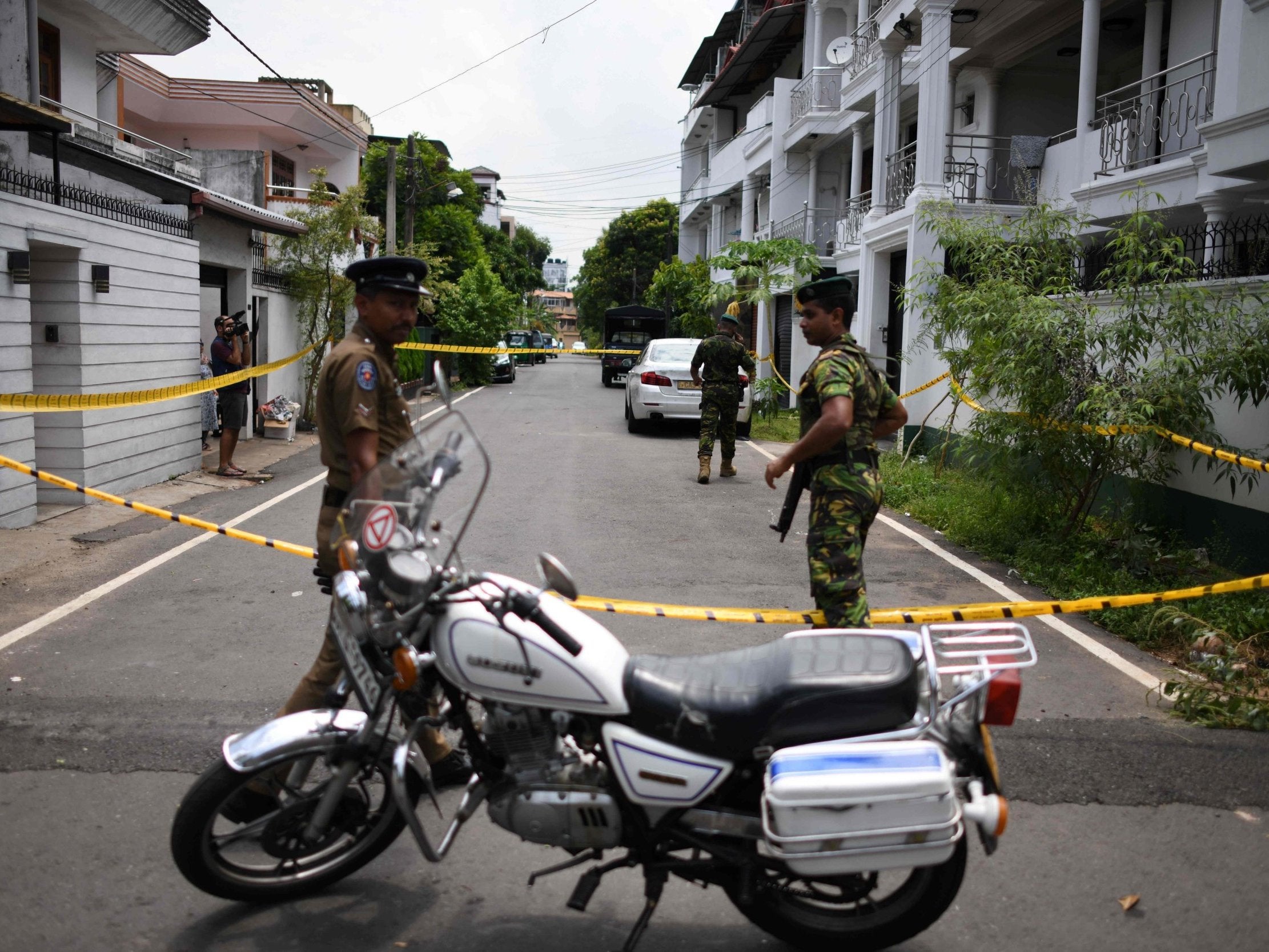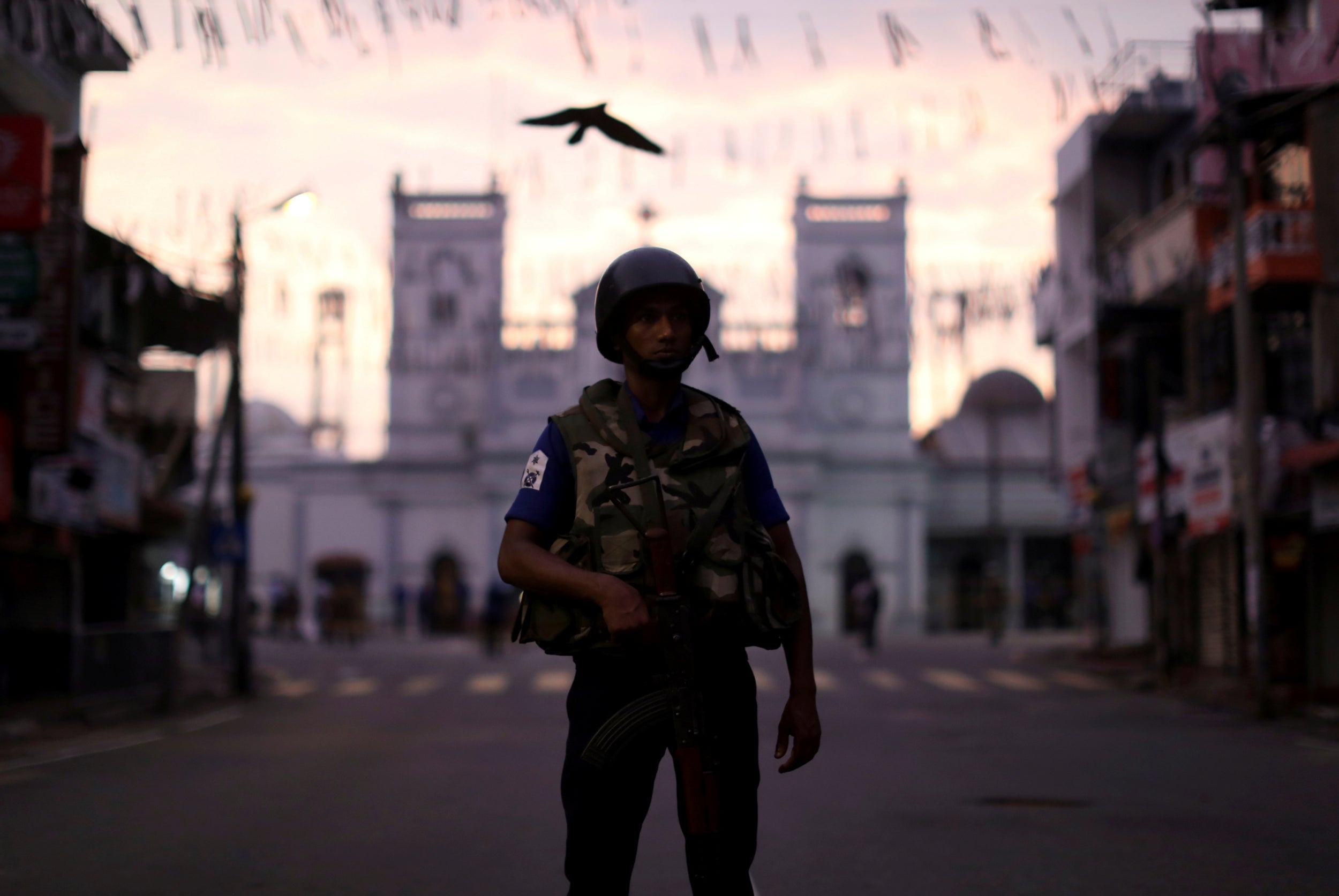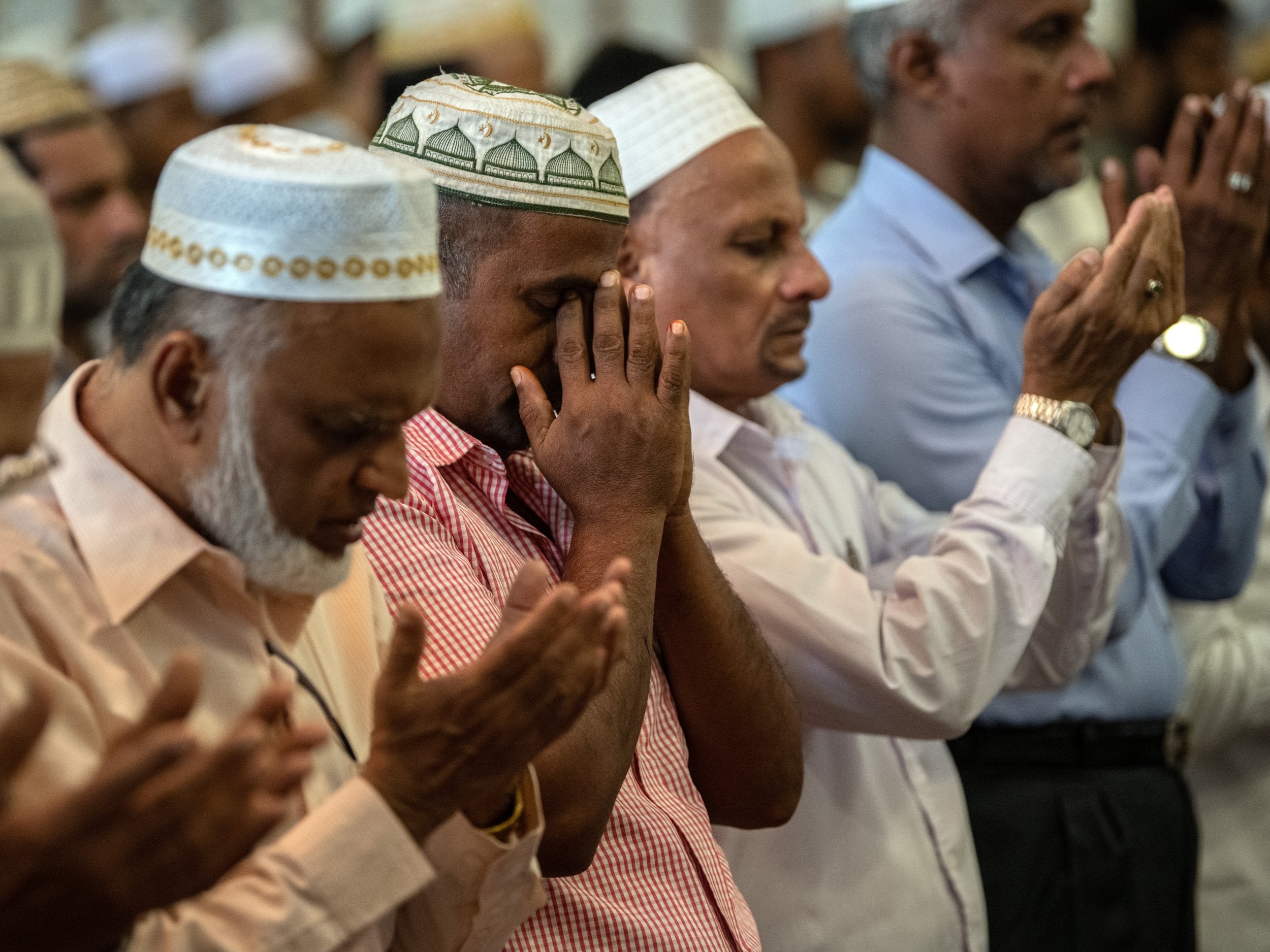Sri Lanka: Police in shootout during raid on 'bomb factory' after Easter Sunday attacks
Security forces raided location used to manufacture suicide vests, according to local media
Shooting broke out between security forces and a group of men in eastern Sri Lanka during a search operation related to the Easter Sunday attacks, said the military.
Brigadier Sumith Atapattu said the gun battle began after soldiers were fired upon when they investigated an explosion in the coastal town of Sammanthurai, 320 km (200 miles) from the capital.
According to Sri Lankan media reports, the security forces raided a property believed to have been used to manufacture suicide vests.
Police spokesman Ruwan Gunasekara said officers in Sammanthurai had found explosive materials, including 150 sticks of blasting gelatin and 100,000 small metal balls, as well as a van and clothing suspected to be used by those involved in the Easter bombings.
Suicide bomb vests have previously been packed with metal balls to increase the shrapnel in the explosion.
Police also announced a 24-hour curfew until further notice in the Muslim-dominated area where Friday’s shooting took place.
Since the suicide bombings on churches and hotels in which more than 250 people were killed, police and military personnel have been conducting raids across the country.
The authorities are trying to track down 140 people believed linked to Isis, which claimed responsibility for the bombings. Police have detained at least 76 people, including foreigners from Syria and Egypt, in their investigations so far.
Isis provided no evidence to back its claim that it was behind the attacks. If true, it would be one of the worst attacks carried out by the group outside Iraq and Syria. The extremist group released a video on Tuesday showing eight men standing under a black Isis flag and declaring their loyalty to its leader, Abu Bakr Al-Baghdadi.

The government said nine homegrown, well-educated suicide bombers carried out the attacks, eight of whom had been identified. One was a woman.
Authorities have so far focused their investigations on international links to two domestic Islamist groups – National Thawheed Jama’ut and Jammiyathul Millathu Ibrahim – they believe carried out the attacks.
Government officials have acknowledged a major lapse in not widely sharing an intelligence warning from India before the attacks.
President Maithripala Sirisena said top defence and police chiefs had not shared information with him. “The police chief said he will resign now,” Mr Sirisena said.
He blamed Prime Minister Ranil Wickremesinghe’s government for weakening the intelligence system by focusing on the prosecution of military officers over alleged war crimes during a decade-long civil war with Tamil separatists that ended in 2009.

Mr Sirisena fired Mr Wickremesinghe in October over political differences, only to reinstate him weeks later under pressure from the Supreme Court.
Opposing factions aligned to Mr Wickremesinghe and Mr Sirisena have often refused to communicate with each other and blame any setbacks on their opponents, government sources say.
Sri Lanka’s former wartime defence chief, Gotabaya Rajapaksa, said on Friday he would run for president in elections this year and would stop the spread of Islamist extremism by rebuilding the intelligence service.
Gotabaya, as he is popularly known, is the younger brother of former president Mahinda Rajapaksa and the two led the country to a crushing defeat of separatist Tamil rebels a decade ago after a 26-year civil war.

Muslims in Sri Lanka were urged to pray at home and not after the State Intelligence Services warned of possible car bomb attacks, amid fears of retaliatory violence.
There will be no Sunday Masses until further notice after the Easter bombings in Sri Lanka, the Archbishop of Colombo has said.
The US Embassy in Sri Lanka also urged its citizens to avoid places of worship over the weekend after authorities reported there could be more attacks targeting religious centres.

Meanwhile, Kingston University in southwest London has confirmed a student with the same name as one of the suspected Sri Lanka bombers attended the establishment during 2006 and 2007.
Abdul Lathief Jameel Mohamed – previously named in media reports – is said to have studied aerospace engineering at the university.
British security officials confirmed that they are investigating Mohamed’s stay in this country. A spokeswoman for the university confirmed on Friday he is listed on records as Jameel Mohamed Abdul Lathief.
“The university does not tolerate any form of incitement to hatred or violence, and condemns in the strongest terms extremist activity,” she said.
Additional reporting by agencies
Join our commenting forum
Join thought-provoking conversations, follow other Independent readers and see their replies
Comments
Bookmark popover
Removed from bookmarks